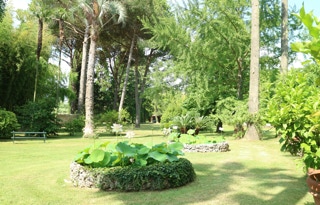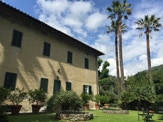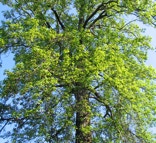The Garden
The garden of the Villa has always been a remarcable point of interest for many botanical experts since the XVIII Century.
There is an important variety of trees, some of which are particulary rare, others are tipical in Tuscan Villas: you will always have lemons in terracotta vases. April is when we pick the first lemons to give time to the trees to produce more lemons in the Summer.


Most impressive are the 200 years old Palm trees like the datteraie, the washingtoniane and the chicas. At the time (1820) is was fashionable to have them. The Palm trees have been full of mithology for the ancient Greeks, for the Romans and for the Christians.
Liquidambar is the name of a tree you will find on your way to the swimming pool. Its name means “liquid ambra”, due to a resina it has inside its wood. Often you see them in North America and in the Far East.

The Olea Fragrance near the Limonaia is an antic and rare orange blossom one. Common to find are the white ones. The strong but delicate fragrance of the flower invades the air in May .
The garden has several areas dedicated to bamboo trees, and in June when the Summer night falls, the fireflies dance between the bamboo trees, making the night magic.
July is the month of the Water Lilies, the two ponds on the South side of the Villa, where Koy fish swimm from one pond to the another, are filled with beautiful pink and white petals and green waterproof leaves. The Lilies open up early in the morning, and close every evening at the same time.
The garden is also rich of Fejoias, the tree is originally from the Philippines. It has a delicious fruit that falls from the tree in September. The fruits have a hard skin so they do not get damaged and maintain fresh 4 or 5 days.
Autumn in the Borgo is rappresented by the yellow leaves of the big Ginkgo Biloba, a Chinese tree, imported in Europe in 1771. It is known as “Living Fossil” due to traces of it since 200 million years ago.
Lemon trees in their traditionl tuscan terracotta vases invade the air during Spring producing generous quantity of lemons.
Borgo Studiati Residenza d’Epoca e Casa Vacanze
Via del Fossetto, 3 - Molina di Quosa - 56017 - Pisa - Italia
Tel +39 3273479272 - info@borgostudiati.it
Borgo Studiati Residenza d’Epoca e Casa Vacanze
Via del Fossetto, 3 - Molina di Quosa - 56017 - Pisa - Italia
Tel +39 3273479272 - info@borgostudiati.it
Questo sito web fa uso di cookies. Si prega di consultare la nostra informativa sulla privacy per i dettagli.





